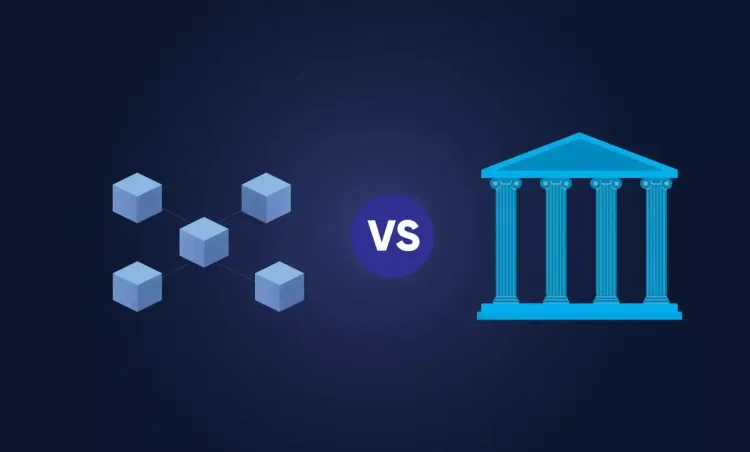Do you want to stop living paycheck-to-paycheck? Your finances seem like an endless puzzle with missing pieces. You are not alone. There are many people who struggle to manage their money well. The good news is, there is a solution. Monthly budget planning. Budgeting is not just about controlling your finances. It's also about taking control of your future. Budgeting allows you to make more informed decisions and achieve your goals, whether it is saving for a vacation, paying down debt, or creating an emergency fund. Discover the basics of budgeting and how it can help you achieve financial stability.
Budget Planning: What You Need to Know
Budgeting is essential to financial health. You can see how much money you spend each month and identify spending patterns you may not have expected. A clear budget empowers you to make informed decisions about your finances. This clarity encourages you to make more thoughtful purchases and helps prevent impulse buys. Budgeting also encourages accountability. Budgeting makes you accountable for your financial decisions. It is easier to track your progress towards goals such as debt repayment or savings. Not only is it important to crunch numbers, but also to create peace of mind. A budget will help you prepare for unexpected expenses. Effective budget planning opens the door to opportunities—whether that's investing in your future or simply enjoying life's little pleasures without guilt.
How to Create a Monthly Budget Plan
It can be overwhelming to create a budget plan for the month. But breaking it into manageable steps makes the process easier. Gather all of your financial documents. Included are pay stubs and bills, as well as bank statements. List all sources of income. Include side hustles and any freelance work. Knowing how much you earn is essential to a strong foundation. Then, list your expenses. Separate your expenses into fixed costs, like rent or mortgage, and variable costs, such as groceries or entertainment. Do not forget irregular expenses. Compare your total income with your total expenses once you've compiled everything. Adjustments are needed if you spend more than you make. Budget for discretionary purchases after you have allocated funds to debt repayment and savings. Prioritize the essentials while planning future goals.
How to Identify Your Income and Expenses
Start by identifying your sources of income. Included in this are your side jobs, freelance work, and other sources of income. To ensure that you do not miss anything, gather pay stubs and bank statements. Then, look closely at your expenses. Divide them into fixed expenses like rent and mortgage payments and variable costs such as groceries and entertainment. Do not forget to include irregular costs, such as car maintenance and annual subscriptions. You can easily track this data using spreadsheets or apps. Categorizing your monthly expenses helps you visualize them. You can make better financial decisions by identifying your income and expenditures. This step is essential in creating a realistic budget for your monthly expenses.
Set Realistic Financial Goals
Budgeting is not possible without financial goals. Your spending and savings habits will be guided by your financial goals. It's easy to lose track of your financial goals without clear targets. Identify what is most important to you. What is your top priority? Is it buying a new vehicle, going on vacation, or creating an emergency fund? Be specific with each goal. Make sure that your goals are attainable. Mix short-term goals with long-term ones. Saving $500 over three months is a good motivator, while saving for retirement will ensure your future security. Breaking larger goals down into smaller milestones can be helpful. By breaking them down into smaller milestones, you can make them more manageable and celebrate your small victories along the way. Review your goals regularly. Life changes, such as job, family, and unexpected expenses, may require you to adjust your goals. Adaptation helps you stay motivated as you work towards financial stability.
Budgeting Tips
It can be difficult to stick to a budget. Consider tracking all expenses to make the process easier. Visualize your spending habits using apps or spreadsheets. Setting aside money for discretionary expenditures is another effective strategy. You'll know when you run out of cash to stop spending. Review your budget on a regular basis. As life changes, so do your financial needs. Adapting your plan will ensure that it is relevant and achievable. Share your goals with family or friends to create accountability. Motivation can be gained by having someone monitor your progress. Reward yourself when you stay within your budget. Budgeting can be made more fun by rewarding yourself with a small gift or experience.
Benefits of Regularly Reviewing Your Budget Plan
It helps you understand your finances better by reviewing them regularly. You can track your spending and spot patterns you might not have noticed otherwise. You can make adjustments as necessary to ensure you are not overspending. Financial changes can be impacted by life changes such as a change of job or unexpected costs. Regular reviews enable timely adjustments. This practice also encourages accountability. Spending habits are encouraged when you can see exactly where your money is going. You are more conscious of your spending and can prioritize. In addition, regular check-ins boost motivation. Set milestones in your budget to make achievements tangible. Celebrate small victories to keep you motivated towards your financial goals.
Alternative Finance Management Methods
By exploring alternative methods of managing finances, you can find new ways to achieve financial stability. The envelope system is a popular way to manage finances. You can track your spending by putting cash in envelopes for different categories. Another option is using technology—budgeting apps like Mint or YNAB offer user-friendly interfaces to monitor income and expenditures in real-time. These tools can provide valuable insights that conventional methods may miss. If you prefer a more practical approach, the zero-based method of budgeting is for you. Every dollar you earn has a specific purpose, such as saving, paying bills, or spending discretionary money. It promotes accountability and eliminates wasteful habits. Peer support groups are invaluable. Sharing your experiences with other people on similar financial journeys can provide motivation and new ideas.
Conclusion
Budgeting is not just a tool for financial planning; it's also a path to freedom. You can make your life less stressful by taking control of your finances. It is impossible to overstate the sense of empowerment you get from knowing exactly where your money is going. It helps you make informed decisions when it comes to saving, investing, and spending. Flexibility is the key to a successful budgeting process. Unexpected expenses can happen, but a budget plan will help you navigate these situations. Accept the learning process. Every month brings new insights about your habits and requirements. As necessary, make adjustments to continue moving towards your financial goals. Celebrate your small victories. Each step you take towards better budgeting will contribute to your long-term peace of mind and stability. Although the road is not without bumps, each step helps to pave the path for a better financial future.




